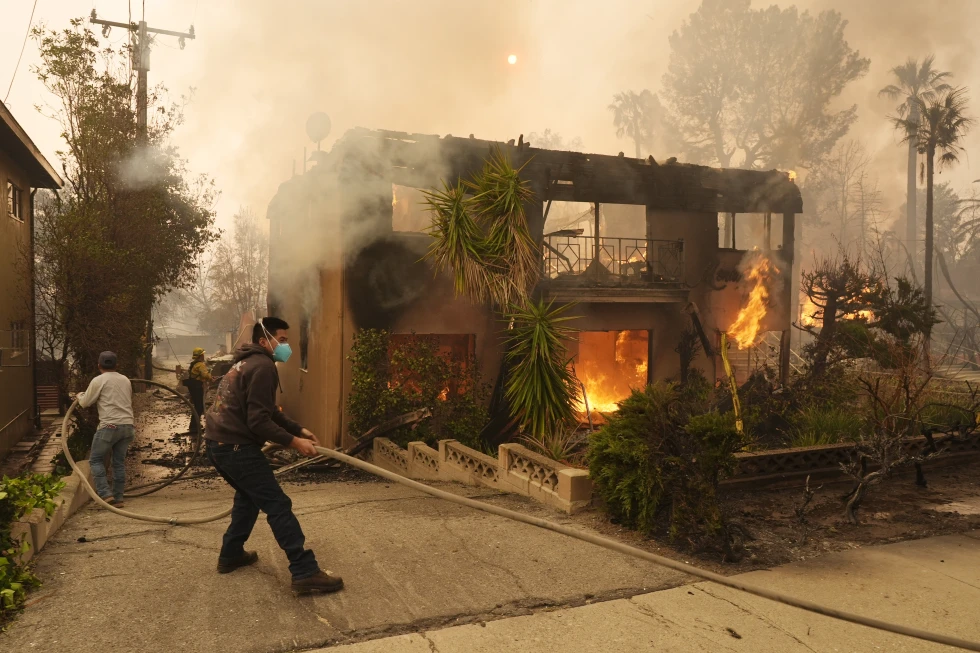The Los Angeles County Board of Supervisors voted this week to begin drafting an ordinance that would give the Department of Consumer and Business Affairs (DCBA) the power to issue administrative fines for illegal rent gouging during declared emergencies. The directive comes after months of mounting complaints in the wake of the January 2025 Eaton and Palisades wildfires, which destroyed over 12,000 homes and displaced tens of thousands of Angelenos.
Under the proposed ordinance, DCBA would be able to levy fines of up to $1,000 per violation and $500 for failure to comply with an investigation. Each day of noncompliance could be treated as a separate offense, and violators could face escalating penalties, mandatory public notice postings, and even disqualification from County contracts. The motion also calls for retaliation protections, tenant restitution, and partnerships with community-based organizations to expand outreach and education.
While this action marks a significant shift in enforcement authority at the county level, it also reflects a breakdown in accountability across multiple levels of government. The County has already received over 3,800 complaints since the emergency declaration, mostly related to housing. More than 1,800 cease-and-desist letters have been issued, and over 230 cases referred to the Price Gouging Task Force—but few civil or criminal cases have been filed.
The lack of prosecution has raised serious concerns among tenant advocates. District Attorney Nathan Hochman—who took office in January pledging to be “tough on crime” and crack down on public safety threats like retail theft—has not brought a single case under California’s price gouging laws despite thousands of documented violations.
“We’ve documented thousands of violations of Penal Code 396 in just the last few months,” said Chelsea Kirk of the Rent Brigade. “These aren’t isolated incidents. This is a structural problem in the aftermath of the fires, and tenants are paying the price.” According to the Rent Brigade’s data through mid-July, 12,809 rental listings in Los Angeles exceed emergency rent caps, totaling an estimated $31.94 million in unlawful overcharges.
The City of Los Angeles has also struggled to enforce protections. City Attorney Hydee Feldstein Soto has filed only two price gouging lawsuits this year, and in the absence of an administrative enforcement mechanism like the one proposed at the county level, her unwillingness to prosecute has effectively blocked any meaningful accountability for landlords violating the law. In February, the City Council passed an ordinance giving tenants the right to sue landlords directly for price gouging, allowing up to $30,000 in damages plus attorneys’ fees. But according to Kirk, the policy remains ineffective because it relies on individual tenants to initiate legal action—something many are unwilling to do out of fear of retaliation or eviction, especially those still recovering from the trauma of losing their homes. She pointed out that under Penal Code 396, even advertising an illegal rental rate is prohibited, yet the city has taken no steps to systematically investigate or penalize landlords who post such listings.
“There’s no mechanism at the city level for proactive enforcement,” said Kirk. “So tenants are left with this legal right that very few people can afford to use. That’s not a real deterrent.”
In response, Councilmember Hugo Soto-Martínez introduced a motion in May calling for greater transparency. His proposal would require the City Attorney’s office to issue monthly reports detailing the number of rent gouging complaints received, investigation timelines, enforcement outcomes, and a breakdown of geographic and repeat violations.
“The devastation caused by January’s fires has continued long after the flames were extinguished,” Soto-Martínez wrote. “Bad actors in the real estate industry have taken advantage of this crisis to illegally inflate the price of rental housing.”
Marissa Roy, a consumer protection attorney and candidate for Los Angeles City Attorney, supports the transparency push and says the city attorney’s office needs to articulate clearer processes. “We need to make it easy for the public to see how complaints are handled,” Roy said. “Showing a clear process—from letter to subpoena to potentially lawsuit—builds trust and supports accountability.”
Roy also emphasized that enforcement doesn’t have to be complicated. “Much of the data already exists. It’s about having the will to take action,” she said.
Advocates also point to the influence of campaign contributions from real estate interests. Both Hochman and Feldstein Soto received substantial backing from landlord-aligned donors and developer-supported PACs during their campaigns—raising questions about whether their enforcement decisions reflect political pressure rather than legal priorities.
While the County’s forthcoming ordinance represents a step forward, tenant organizers say enforcement efforts remain fragmented. Without real penalties, transparent reporting, or independent enforcement tools at the city and state level, illegal rent hikes continue unchecked. For now, the clearest takeaway is that legal protections on paper offer little relief if no one is willing or able to enforce them.

